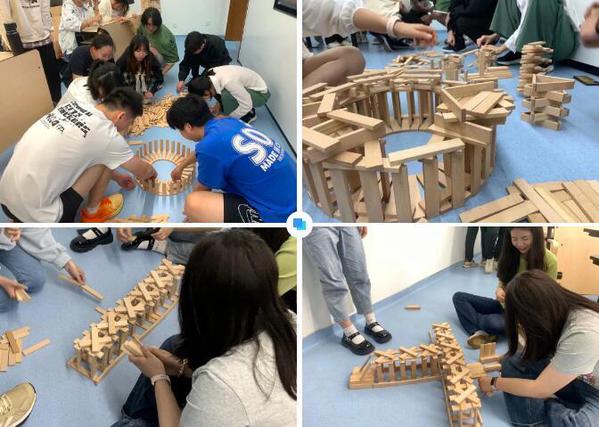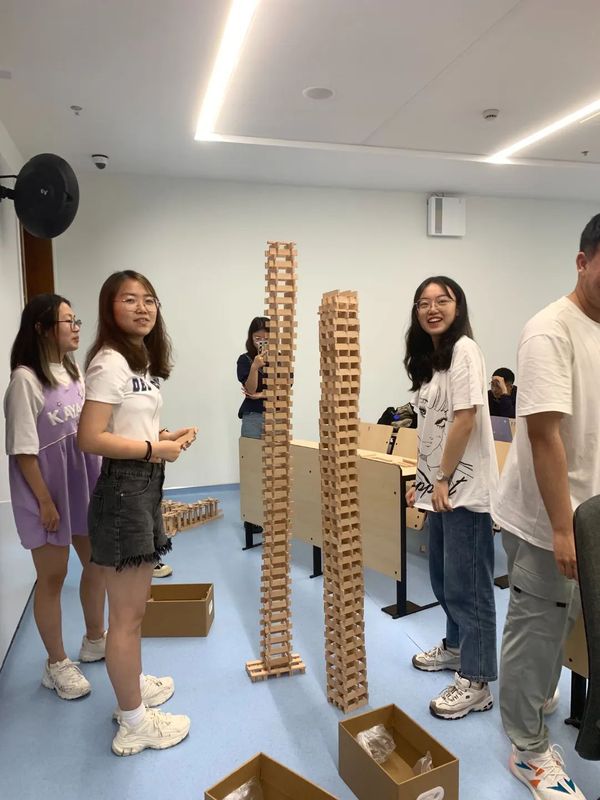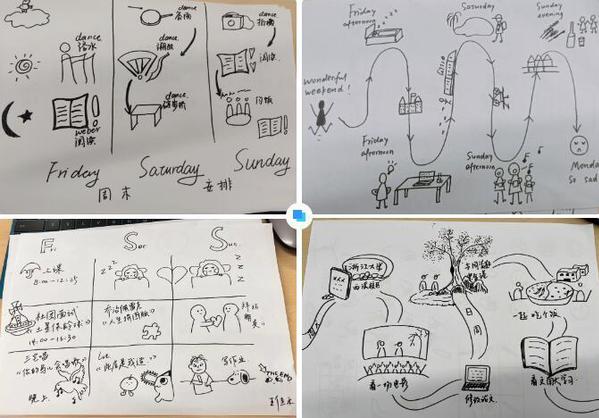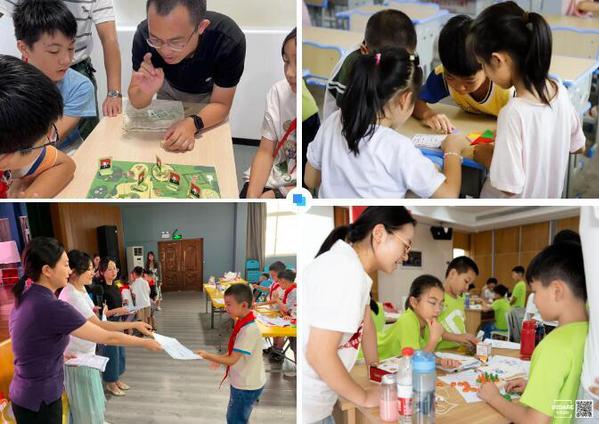Zhejiang University: Dr. XU Cihua’s Course Inspires Ingenuity Through Building Blocks
In a creative assignment, students from the Thinking Education and Practice course, a module taught by Dr. XU Cihua at the School of Philosophy, were tasked with constructing distinctive models using unlimited pieces of building blocks. Some students created a demonstration model based on the “trolley problem”, a famous ethical dilemma in philosophy, while others engaged in the “stacking game”, piecing together limited wooden boards to achieve maximum height.

The course emphasized teamwork and hands-on skills, which were highlights. Diverse interactive and practical sessions, such as brainstorming, video filming, and event planning, were included. With different emphases, these activities allowed students to embrace the joy and value of teamwork and embody the adage “actions speak louder than words”. After a semester of “hand-brain coordination” training, students not only gained knowledge but also forged friendships that extended beyond the classroom.”The content is interesting and practical, achieving a combination of philosophical theory and practice.I will strongly recommend it to my classmates,” his students commented.

Stepping out of the campus, students immersed themselves in practical applications. To create more platforms for thinking education, Dr. XU guided 12 practical activities entitled “Bringing Thinking Education to Children in Villages and Local Communities” during the past summer. Many students enrolled in the course also joined the corresponding teams to conduct practical activities. After transitioning into the role of teachers, these students delivered “logical, interesting, and useful” classroom experiences to both urban and rural children who participated in the activities.

The practical teams, armed with professional teaching tools, continuously unlocked children’s cognitive potential. The activity “A Box of Stories” expanded children’s imagination by having them weave narratives from random patterns on distinct dice sides. Another activity, “Farm Memory Chess”, taught children to associate hidden patterns on chess pieces with a farm map, introducing the “method of Loci” used by memory masters to them. These activities not only provided enjoyment but also revealed the allure of thinking to the participating children and introduced thinking education to them at an early age.

Here, “thinking” transcended mere vocabulary; it became a pathway and a tool. Through this course, students improved their time management, learned to write essays more logically, and embraced their social responsibility. In this way, they truly reaped tangible benefits from the learning experiences.
Adapted and translated from the article written by FU Hangying, GUO Hangyu

